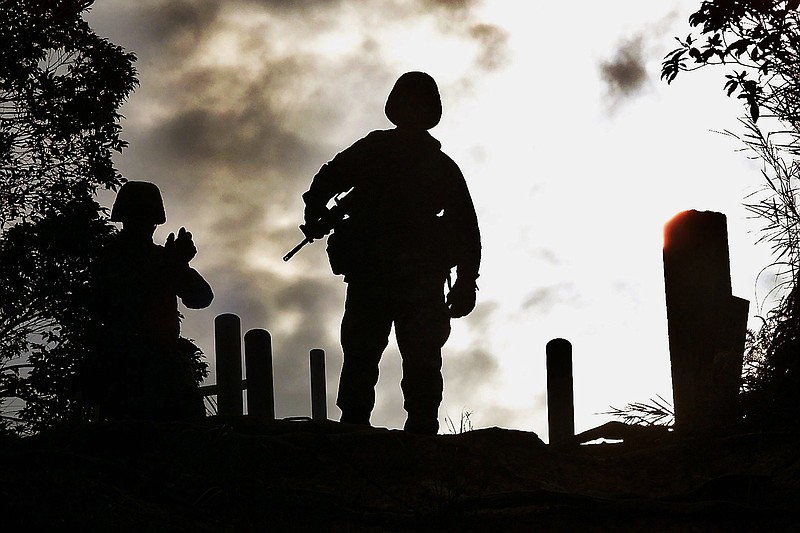TOKYO -- Okinawa marks today as the 50th anniversary of its return to Japan on May 15, 1972, which ended 27 years of U.S. rule after one of the bloodiest battles of World War II was fought on the southern Japanese island.
The day is being marked with more bitterness than joy in Okinawa, which is still burdened with a heavy U.S. military presence and is now seeing Japanese troops increasingly deployed amid rising China tensions.
U.S. troops, in their push for mainland Japan, landed on Okinawa's main island on April 1, 1945.
The battle lasted until late June, killing about 200,000 people, nearly half of them Okinawan residents, including students and victims of mass suicides ordered by the Japanese military.
Okinawa was sacrificed by Japan's imperial army to defend the mainland, historians say. The island group remained under U.S. occupation for 20 years longer than most of Japan, until 1972.
The U.S. military recognized Okinawa's strategic importance for Pacific security and planned to maintain its troop presence to deter Russia and communism in the region.
A 1946 decision by the Supreme Commander for the Allied Powers, Gen. Douglas MacArthur, separated Okinawa and several other southwestern remote islands from the rest of Japan, paving the way for U.S. rule beyond April 28, 1952, when the San Francisco treaty took effect, ending the seven-year U.S. occupation in the rest of Japan.
According to the Okinawa Prefectural Archives, imperial advisor Hidenari Terasaki told MacArthur of Emperor Hirohito's "opinion" that the U.S. military occupation of Okinawa should continue to address worries about Russia.
During U.S. rule, Okinawans used the dollar and followed American traffic laws, and any trips between Okinawa and mainland Japan required passports.
The base-dependent economy hampered the growth of local industry. The local Okinawan government had little decision-making power, and authorities had no access to the criminal investigation of U.S. military personnel.
Demands for reversion to Japan rose in the late 1950s across Okinawa over the confiscation of local land for U.S. bases.
Many Okinawans demanded tax reform, wage increases and better social welfare systems to correct disparities between Okinawa and the rest of Japan.
But the delayed reversion, the heavy U.S. military presence and mismanaged development funds from the central government have hampered the island's economic development, experts say.
Resentment over the heavy presence of U.S. troops runs deep. Many Okinawans believe their sacrifice made possible the post-World War II Japan-U.S. security alliance.
There are also tensions between Okinawa and the Japanese mainland, which annexed the islands, formerly the independent kingdom of the Ryukus, in 1879.
There are complaints of discrimination and claims that Okinawans are forced to serve an "expendable role to protect mainland Japan," said Hiromori Maedomari, an Okinawa International University politics professor.
Some people have started calling for independence from Japan.
After seeing their requests repeatedly ignored, many Okinawans, including younger generations for whom U.S. bases are part of their daily lives, feel there is no use speaking out, said Jinshiro Motoyama, 31, a key organizer of the 2019 referendum.
There are worries that calls by ruling lawmakers for a further military buildup amid rising tensions around nearby Taiwan could increase the risk of war.
"I'm afraid plans are being made on the premise that Okinawan people can be victimized in a conflict," Motoyama said.
